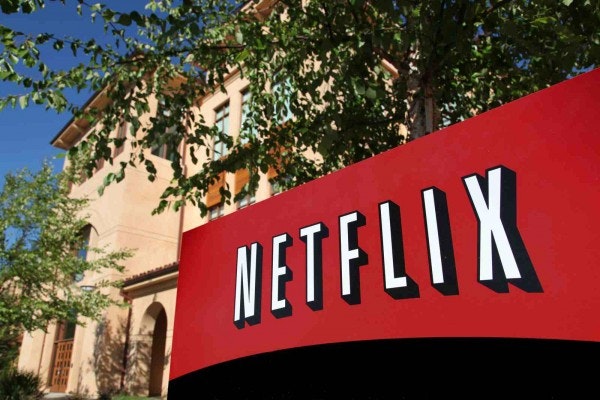In a bid to build brand equity and differentiate their services from the rest, video streaming companies, especially the Internet kind, are racing to build-out original content. Original content harnesses the company’s brand value and gets a lot of press attention, which aids in harnessing near-term subscriber growth. Internet TV first mover, Netflix, Inc. (NASDAQ:NFLX) is investing heavily in original content, to maintain its huge lead over streaming competitors.

Even though Netflix, Inc. (NASDAQ:NFLX) didn’t disclose the success, or lack thereof, of its dramatic original show, “House of Cards,” the buzz on the web clearly pointed towards a very strong reception and a successful investment for Netflix, Inc. (NASDAQ:NFLX). It’s almost impossible to know the new subscriber additions from the original series before Q1 F’13 results come in, a mere guess would be quite a handful. The strategic shift from being a video distributor to a content producer enhances the investment case for Netflix, Inc. (NASDAQ:NFLX) even more.
Netflix’s chief content officer stated that the goal of Netflix, Inc. (NASDAQ:NFLX) is to not to dismantle TV, but to evolve the experience. Consider that House of Cards is the most watched show on Netflix, Inc. (NASDAQ:NFLX) worldwide in terms of hours viewed across the globe. Also, the recent integration of Facebook and Netflix, will aid in getting free publicity and drive more viewer hours, but is unlikely to aid in bringing in material amounts of new subscribers from the current level of 33.3 million subscribers.
However, with a strong list of original shows coming on Netflix in 2013-2014, even small amounts of sharing on a social media platform like Facebook will appeal to curious on-lookers.
The star-studded “House of Cards” got a lot of press attention, and has been a big hit amongst Netflix’s subscribers. However, the visionary Reed Hastings isn’t overly convinced that it will pave the way for Netflix to evolve into an original programming company yet. Hastings believes that his firm will churn out a number of big franchises over the 5-10 years and that it can be quite material to Netflix’s net subscriber additions, which could get a material boost.
It is reasonable to believe that the growth in subscribers to more than 50-60 million in the next few years can be achieved. Netflix is getting ready to launch a number of original shows throughout 2013, and in 2014 as well. With so many headlines and a differentiated service due to original content, Netflix will stand-out from the crowd.
Netflix is betting big money on original content with some estimates pegging the cost of 2 seasons of House of Cards at well over $100 million. In Q2 2013, the company will be premiering “Hemlock Grove,” which is supposed to be a solid horror series. Also, Netflix has commissioned the return of the once popular Arrested Development for a 4th Season.
Followed by Arrested Development, will be two other original shows, Orange is the New Black, based upon the now famous book, and Derek. Both will likely be featured in Q3 or maybe Q4 2013. The Norwegian crime show, LilyHammer will come back for a second season. And lastly, the anime show, Turbo:Fast will likely air in Q4.
In 2014, two shows are almost certain to air on Netflix, the much anticipated Season 2 of House of Cards, and Sense8, a show produced by the Wachowkis, who are the force behind movies like the Matrix Trilogy.
Netflix’s main competitor in low-cost Internet streaming, Amazon.com, Inc. (NASDAQ:AMZN) is also trying to differentiate its service with a major roll-out of a number shows. Amazon is being a lot more risk-averse relative to Netflix, because Amazon.com, Inc. (NASDAQ:AMZN) plans to test out pilot episodes, get feedback from the crowd and viewers, and then build up full-fledged shows. Amazon.com, Inc. (NASDAQ:AMZN) is in the process of producing at least 14 pilot episodes.
Redbox Instant has no plans to introduce original content anytime soon, and will be focused on mostly movies. Also rising Internet platform, Hulu is also in the process of launching a number of original shows throughout 2013.
Amazon.com, Inc. (NASDAQ:AMZN)‘s approach is substantially different from the big-name, big budget shows that Netflix will be releasing with all the episodic content at once. Netflix has a clear edge over its rivals even from its original content strategy.
As viewers are increasingly shifting their video watching online and through tablets, Smart TVs etc., the movie studios will be increasingly reliant upon low cost streaming firms like Netflix and Amazon.com, Inc. (NASDAQ:AMZN). Doing business with Netflix allows studios to monetize catalog movies that are older than 1 year and not in theaters anymore.
The slow secular decline in DVD will also make studios hungrier for video distribution. This gives Netflix a lot of bargaining leverage, which will aid in keeping costs manageable. Netflix’s management has stated that the company doesn’t view any particular movie or TV show as a must have, as a result, studios that are unreasonable in content negotiations can be weeded out.
As Netflix is rapidly becoming a power player in global video streaming, studios will be very keen and eager to do licensing deals with Netflix, compared to other major video distributors like Amazon.com, Inc. (NASDAQ:AMZN) and Hulu, because of the much larger installed audience.
In addition, to trimming down the marketing budget, and the customer acquisition costs, original content that is completely exclusive to Netflix enhancing the company’s brand value by getting free publicity globally, this in turn, stimulates increased word-of-mouth marketing. It delights customers and aids in bagging newer ones. As a content producer, it gives Netflix increased leverage in content licensing negotiations with movie studios, as it can pursue a different route.
The article Is Original Content a Game Changer for Netflix? originally appeared on Fool.com and is written by Ishfaque Faruk.
Copyright © 1995 – 2013 The Motley Fool, LLC. All rights reserved. The Motley Fool has a disclosure policy.